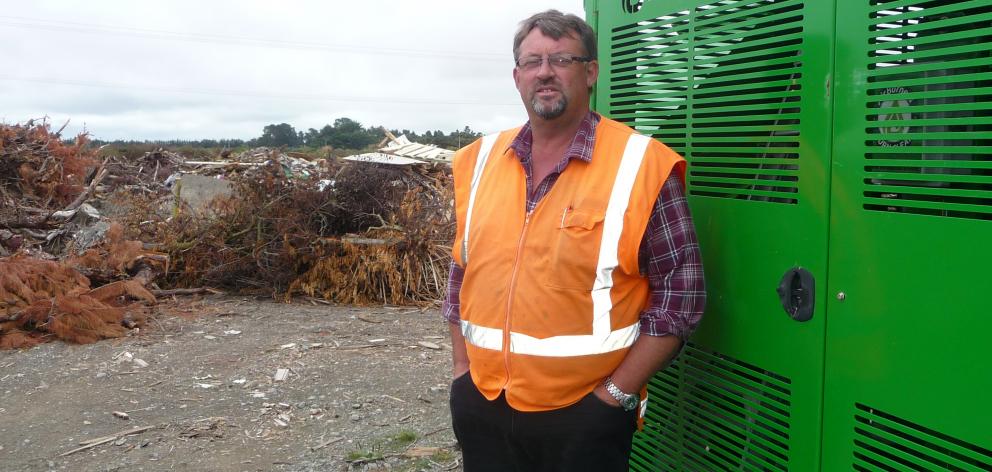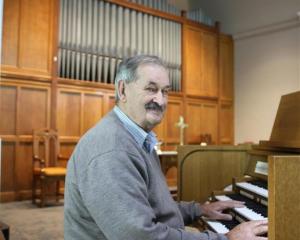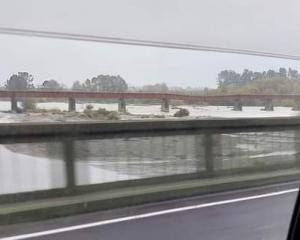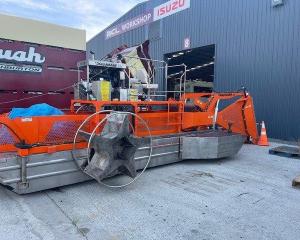
For the past couple of years the Ashburton Eco Park site on the corner of Cochrane and Seafield roads has processed tonnes of by-products from the contracting businesses Mr Donaldson runs.
Items like cleared trees, power reels and stumps are burnt in a giant incinerator.
The current incinerator, or ‘‘curtain burner’’ as Mr Donaldson calls it, is mobile and can process 10 tonnes of material an hour.
The incinerator’s resource consent for particle discharge states that it is a 99 per cent clean operation.
The first stage of expansion could involve the purchase of a electricity generating plant, which will connect to the incinerator and return electricity to the grid.
If volume really takes off and expansion becomes viable, Mr Donaldson says he is prepared to invest millions into a more powerful and permanently located processor.
Mr Donaldson said he was excited about the future prospects of the 8ha eco park site and believed it could work on a big scale.
‘‘It will provide a good end use for rubbish.
‘‘Instead of rubbish going off to Kate Valley, or being burnt illegally, it can be processed here in a much more environmentally friendly way.’’
Mr Donaldson said the biomass concept had come about out of necessity for his business and because of the by-products generated from demolition, roading, site works, earthmoving, directional drilling and ploughing.
He said word of the eco park site had spread among the commercial sector over a number of months and he was now opening it up and inviting the general public to come on board.
There would be flat rate charges for boot loads, trailer loads and truck loads of waste dropped off.
The waste strictly did not include plastics, treated timbers, food waste, PVC, soil, pink batts, paints or rubber.
The charges would be competitive, and would be reduced if there was enough material being processed and if electricity was generated.
Mr Donaldson said he would assess volumes and progress over the next 12 months.
If a big biomass plant did eventuate, and ran flat out five days a week, he anticipated employing four or five more staff, and more if it was a seven day a week operation.
Mr Donaldson said he did not know of any other large scale biomass plants operating in New Zealand, but had heard about successful operations in the USA and Europe.
The Ashburton Eco Park will be open to the general public from 8.30am on February 24. It will open weekdays from 8.30am until 5.30pm and on Saturdays from 9am until 2pm.














